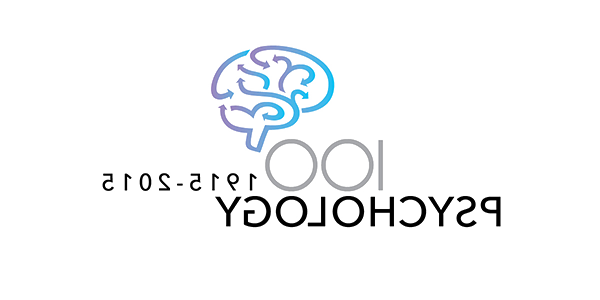Academics
The Department of Psychology offers 5 undergraduate majors: a Bachelor of Arts in Psychology, a Bachelor of Science in Psychology, a Bachelor of Science in Cognitive Science, a joint Bachelor of Science (in conjunction with the Department of Biological Sciences) in Psychology and Biological Sciences, and an inter-college Bachelor of Science degree in Neuroscience. In addition, the department offers two minors, one in Psychology and one in Cognitive Neuroscience.
Majors
Bachelor of Arts in Psychology
Bachelor of Science in Psychology
Bachelor of Science in Cognitive Science
Bachelor of Science in Neuroscience
Bachelor of Science in Psychology and Biological Sciences
Majors in the department are expected not only to learn about findings already established by psychologists, but also to become proficient in the investigation and analysis of behavior. About half of our graduates go on to graduate or professional school. The remainders seek to expand their problem-oriented skills so that job opportunities beyond those typically open to liberal arts students are available.
Minors
Psychology and Cognitive Neuroscience Minor
Survey the Field
All of these degrees feature courses taught by experts, an opportunity for students to learn about and even get involved in cutting edge research, and a focus on developing highly skilled graduates. To help you get a sense of the breadth of the material that is taught in the department, as well as an idea about introductory courses to take, here is a list and a brief description of our introductory surveys to subfields of psychology.
85-102 Introduction to Psychology
This course examines major areas of scientific psychology in some depth, the attempt being to develop basic models of our behavior and thought that explain wide areas of our functioning. The primary focus is on the areas of neural and motivational control of behavior, memory and thought, social interaction, and psychological development. Specific topics within these areas include brain function, motivational control systems, learning, cognitive and perceptual information processing, problem solving, obedience and conformity, social interaction, emotion, attitude consistency and change, how our social, cognitive and language functions develop, the importance of childhood to adult functioning, and psychopathology. In addition to the lecture, the course includes a weekly recitation section meeting and weekly short WEB-based laboratory experiences in which students get to perform actual experiments, interpret real data, and experience many psychological phenomena.
85-211 Cognitive Psychology
How do people perceive, learn, remember, and think? This course will consider perception, language, attention, learning, memory, reasoning, and decision-making. Experimental findings and formal models will be discussed in each part of the course.
85-219 Biological Foundations of Behavior
This course will provide students with a general introduction to the underlying biological principles and mechanisms which give rise to complex human cognitive, perceptual and emotional behavior. Topics to be covered include: the anatomical structure of nerve cells and how they communicate, properties of brain organization and function, processing in sensory and motor systems, biological characteristics of human cognition, and neural and hormonal influences on health and emotion. This course will focus on how emerging methods and approaches are beginning to make it possible for psychologists, computer scientists, and biologists to gain an integrated understanding of complex behavior.
85-221 Child Development
This course is about normal development from conception through adolescence. Topics include physical, perceptual, cognitive, emotional and social development. Students will learn facts about children at various points in development, theories about how development works, and research methods for studying development in infants and children. Students will be encouraged to relate the facts, theories and methods of developmental psychology to everyday problems, social issues and real world concerns.
85-241 Social Psychology
The focus of this course will be on how peoples behavior, feelings and thoughts are influenced or determined by their social environment. The course will begin with lectures and readings on how social psychologists go about studying social behavior. Next, various topics on which social psychologists have done research will be covered. These topics will include: person perception, prejudice and discrimination, the nature of attitudes and how attitudes are formed and changed, interpersonal attraction, conformity, compliance, altruism, aggression, group behavior, and applications of psychology to problems in health care, law, politics, and the environment. Through readings and lectures on these topics, students will also be exposed to social psychological theories.
85-251 Personality
The primary purpose of personality psychology is to understand human uniqueness--how and why it is that one person differs from others, in terms of the ways he or she thinks, feels, and acts. Students in the course will be exposed to several broad theoretical perspectives, each of which attempts to capture and understand the origins and consequences of individual distinctiveness from a slightly different vantage point. Included among these approaches are the dispositional, psychoanalytic, learning, phenomenological, and cognitive self regulation perspectives. This is a survey course and is intended to provide students with a broad background of theory and research in the area. Class meetings consist primarily of lecture, but there is some discussion too. In addition, classroom exercises will allow students to test their own personalities.
85-261 Abnormal Psychology
The study of psychopathology is not an exact science; nor are there many clear-cut parameters with which to differentiate "normal" and "abnormal" behavior. This course will focus on learning about and understanding the range of behaviors which fall within the province of "abnormal" psychology. Its approach will be descriptive, empirical, theoretical and conceptual. Students will examine definitions of ?abnormality? in an historical and contemporary context, explore issues relevant to diagnosis and patient care, be introduced to various psychological diagnostic categories, and develop an appreciation of the range of treatments for these disorders.
